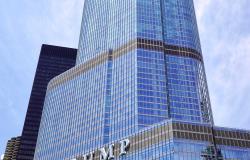 Branko Milanovic in Global Policy:
Branko Milanovic in Global Policy:
Modern capitalism societies are built on a dichotomy: in the political space decisions are (to be) made on an equal basis with everybody having the same say and with the structure of power being flat; in the economic space the power is held by the owners of capital, the decisions are dictatorial, and the structure of power is hierarchical. The dichotomy was always a complex balancing act: at times, the political principles of nominal equality tended to intrude into the economic space and to limit the power of owners: trade unions, ability to sue companies, regulations regarding discrimination, hiring and firing. At other times, it was the economic sphere that invaded the political: the wealthy were able to buy politicians and impose the laws they liked.
The entire history of capitalism can be readily understood as the struggle between these two principles: is the democratic principle “exported” from politics to rule in economics too, or is the hierarchical principle of company organization to invade the political sphere. Social democracy was essentially the former; neoliberalism was the latter.
Neoliberalism justified and promoted the introduction of purely economic and hierarchical principles in the political life. While it maintained the pretense of equality (one-person one-vote), it eroded it through the ability of the rich to select, fund, and make elect the politicians friendly to their interests.
More here.
